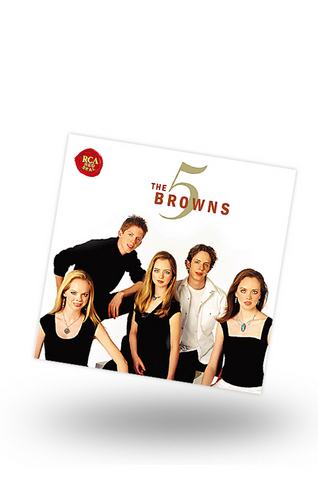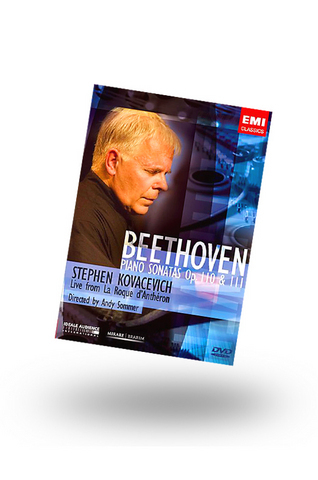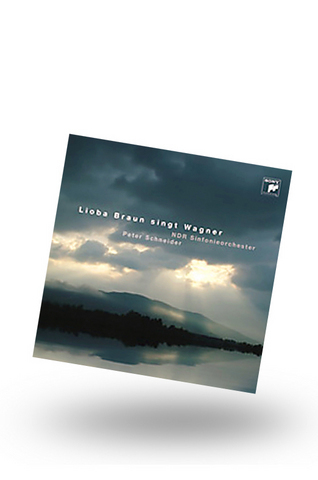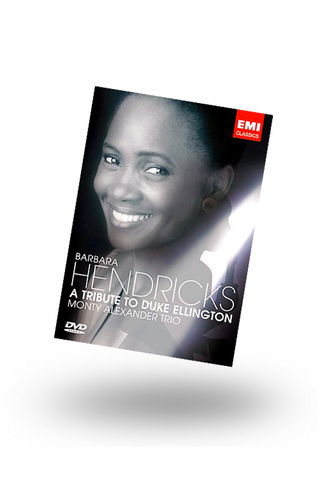With classical audiences dwindling, it's not surprising the major recording companies are pulling out all the stops to attract the young. The strategy goes back 50 years, but with their ever-increasing back-catalogues of performances already in their copyright, they have ever more to gain from preventing them slipping into oblivion. Sony BMG, for this reason presumably as well as more altruistic ones, is this month promoting the debut CD album The 5 Browns, a major bid to attract American and other teenagers to music in the classical idiom.
Desirae, Deondra, Gregory, Melody and Ryan Brown are a set of siblings in their 20s. They all learnt piano from the age of three and, far more surprisingly, all won scholarships to New York's prestigious Juilliard School of Music. This feat won them TV slots in the US on 60 Minutes and Oprah, and now sees them launched with a CD, plus a bonus 12-minute DVD.
On the DVD they play two five-pianos-at-a-time numbers and give a chatty interview with plentiful mention of how scary they found recording and how much they also enjoy hip-hop, jazz etc. The aim is clear -- to do everything possible to attract, and not to alienate, the ultra-cool younger generation.

PHOTOS COURTESY OF THE MANUFACTURERS
The CD, fortunately, doesn't indulge in any significant dumbing-down. They play items from Rachmaninoff, Ravel, Debussy and Prokofiev, either all five of them together or else singly (once as a pair). The standard is high. But what matters is their youth, and to understand this you have to see them playing and talking on the all-too-brief DVD.
Utterly different is the somber new DVD of Stephen Kovacevich playing Beethoven's two last piano sonatas, together with some short encore pieces by Beethoven and Schubert. You only have to consider the music to know pretty much what to expect. Beethoven's last five piano sonatas are generally considered some of the most profound piano music ever written -- intellectual, ethereal, highly-wrought, both plumbing the depths and scaling the heights. The "Arietta" of Opus 111, for example, has been described as occupying "remote spiritual regions," after which "celestial utterances" nothing more could possibly be said. (The sonata does indeed stop here, without the conventional scherzo or finale).
Thus it is that, in a recital recorded last summer before a small audience in France, Kovacevich can be seen concentrating all his efforts, sweating profusely (or is he crying?), but finally triumphant. It's the kind of music that demands nothing less. It's hard on the listener too, so much so that you wonder for once quite what the sight of the soloist on DVD adds to the experience. Does it distract from your intellectual concentration? Possibly. Anyway, this, like the summit of Everest, is for dedicated devotees only, in this case devotees of Beethoven and the extremes of Romantic piano music in general.

Wagner believed he was Beethoven's successor. Purists have sometimes scoffed at this claim, but the most significant difference is that Wagner was a man of the theatre and Beethoven's genius, despite Fidelio, was decidedly non-theatrical. Few can imagine the reclusive voyager leaping on stage and fervently acting everyone's parts as Wagner did.
Sony Classical now offers mezzo-soprano Lioba Braun in some of Wagner's greater operatic moments, plus his cycle of art-songs, the Wesendonck-Leider. These leider are forerunners of Richard Strauss' Four Last Songs -- possibly the only occasion when this late-comer actually outdid his illustrious master. Originally set to piano accompaniment, only one of them was orchestrated by the composer. Here are all five with orchestra, the other four in the usual versions of Felix Mottl.
The Norddeutschen Rundfunk Sinfonieorchester, playing superbly under Peter Schneider, are co-stars with the soloist on this CD. Braun has a good all-round voice, and only in the concluding liebestod from Tristan do you feel she might have bitten off rather too much. But there are stellar competitors in the catalogue for the other roles she sings here -- Kundry, Sieglinde, Waltraute -- as well, and many of these other tracks are impressive. This, then, is a generous and dependable CD, acceptable so long as you don't expect to hear a once-in-a-lifetime liebestod.

Finally there's A Tribute to Duke Ellington, the release on DVD of classical soprano Barbara Hendricks' appearance at the 1994 Montreux Jazz Festival. You see her in the relatively subdued setting of the Montreux Jazz Cafe; the tables look widely-spaced and you imagine ticket prices were high. She enters into the spirit of the 15 Duke Ellington numbers she sings, while at the same time hitting some quasi-operatic final notes. The Monty Alexander Trio she performs with are clearly ecstatic at her presence, and everyone seems overjoyed at her performance.
She's subsequently sung this kind of music in public quite frequently, but this was her first time. With her adopted Swedish nationality, her science degree, her championing of international causes, and now the variety of music she sings, Hendricks is a true original. This DVD will be very popular with many different kinds of audiences, and the fact that I didn't enjoy it very much myself is almost wholly irrelevant.


On a harsh winter afternoon last month, 2,000 protesters marched and chanted slogans such as “CCP out” and “Korea for Koreans” in Seoul’s popular Gangnam District. Participants — mostly students — wore caps printed with the Chinese characters for “exterminate communism” (滅共) and held banners reading “Heaven will destroy the Chinese Communist Party” (天滅中共). During the march, Park Jun-young, the leader of the protest organizer “Free University,” a conservative youth movement, who was on a hunger strike, collapsed after delivering a speech in sub-zero temperatures and was later hospitalized. Several protesters shaved their heads at the end of the demonstration. A

In August of 1949 American journalist Darrell Berrigan toured occupied Formosa and on Aug. 13 published “Should We Grab Formosa?” in the Saturday Evening Post. Berrigan, cataloguing the numerous horrors of corruption and looting the occupying Republic of China (ROC) was inflicting on the locals, advocated outright annexation of Taiwan by the US. He contended the islanders would welcome that. Berrigan also observed that the islanders were planning another revolt, and wrote of their “island nationalism.” The US position on Taiwan was well known there, and islanders, he said, had told him of US official statements that Taiwan had not

The term “pirates” as used in Asia was a European term that, as scholar of Asian pirate history Robert J. Antony has observed, became globalized during the European colonial era. Indeed, European colonial administrators often contemptuously dismissed entire Asian peoples or polities as “pirates,” a term that in practice meant raiders not sanctioned by any European state. For example, an image of the American punitive action against the indigenous people in 1867 was styled in Harper’s Weekly as “Attack of United States Marines and Sailors on the pirates of the island of Formosa, East Indies.” The status of such raiders in

As much as I’m a mountain person, I have to admit that the ocean has a singular power to clear my head. The rhythmic push and pull of the waves is profoundly restorative. I’ve found that fixing my gaze on the horizon quickly shifts my mental gearbox into neutral. I’m not alone in savoring this kind of natural therapy, of course. Several locations along Taiwan’s coast — Shalun Beach (沙崙海水浴場) near Tamsui and Cisingtan (七星潭) in Hualien are two of the most famous — regularly draw crowds of sightseers. If you want to contemplate the vastness of the ocean in true